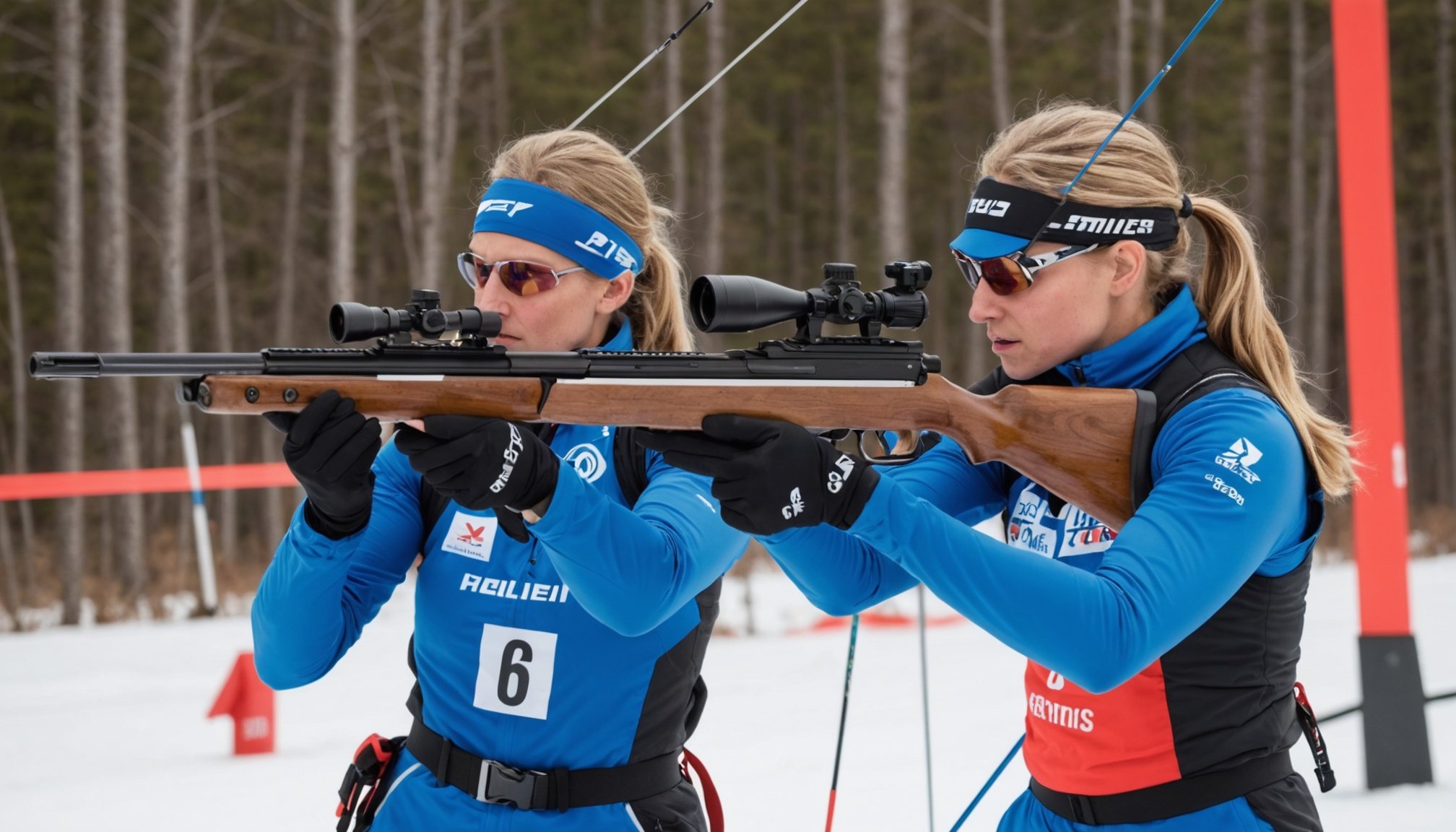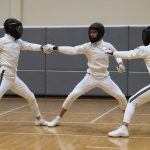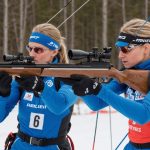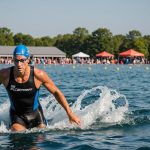Unlocking Precision: Essential Mental Drills for Biathletes to Enhance Shooting Accuracy
Understanding the Importance of Mental Training in Biathlon
When it comes to biathlon, a sport that demands both physical endurance and mental acuity, the role of mental training cannot be overstated. Biathletes must navigate the challenging terrain of cross-country skiing and the precision required for target shooting, all while managing the physiological and psychological stresses of competition.
Mental sharpness is crucial for maintaining steady aim and executing correct form and timing, especially under the intense pressure of a race. Here’s why mental training is pivotal:
Also read : Unlocking cornering excellence: essential techniques for motocross riders to elevate race performance
-
Synergy Between Physical and Mental Facets: Biathlon performance is a delicate balance between physical endurance and mental focus. The more an athlete can integrate these two aspects, the better their overall results will be. Mental training enhances the athlete’s ability to manage the physical demands of skiing while maintaining the precision needed for shooting[1].
-
Impact on Shooting Accuracy: A clear and concentrated mind directly influences the precision of shots. Visualization, scenario-based imagery, and mindfulness are key mental drills that help biathletes encode correct techniques in their muscle memory, leading to more reliable execution during high-pressure moments[1].
Topic to read : Elevate your fencing footwork: discover the key techniques for boosting speed and agility
Essential Mental Drills for Enhancing Shooting Accuracy
Biathletes rely on a variety of mental drills to enhance their shooting accuracy and overall performance. Here are some of the most effective techniques:
Visualization Techniques
Visualization involves mentally simulating successful shots. This technique is powerful because it prepares athletes by engaging their minds in shooting practice before the actual event.
- Simulating Success: By imagining every aspect of the shooting process—from posture to bullet trajectory—athletes can encode correct techniques in their muscle memory. This mental rehearsal helps in developing a consistent and reliable shooting form, even in the face of competition pressure[1].
Mindfulness and Breathing Exercises
Mindfulness combined with breathing exercises is essential for fostering calmness and improving mental focus.
- Reducing Anxiety: Techniques like deep breathing reduce anxiety and stabilize heart rates, creating an optimal mental state for shooters. This calm and focused state ensures that biathletes maintain steady hands and sharp concentration, which are essential for shooting accuracy[1].
Scenario-Based Imagery
Scenario-based imagery allows athletes to prepare for varying shooting conditions.
- Enhancing Adaptability: By mentally rehearsing diverse scenarios, biathletes build resilience to unexpected challenges. This practice equips athletes to approach each target with a composed and agile mindset, ready to adapt to any situation that arises during competition[1].
Developing Concentration and Focus
Maintaining concentration and focus is critical for delivering optimal performance in biathlon. Here are some structured exercises designed to enhance these skills:
Concentration Grid Exercises
Concentration grid exercises are effective in building sustained focus over extended periods.
- Identifying Sequences: These exercises involve identifying sequences of numbers or patterns amidst distractions. This helps athletes develop the ability to concentrate despite external stimuli, a skill that is invaluable during the intense environment of a biathlon competition[1].
Focus Shifting Drills
Focus-shifting drills are crucial for sharpening the ability to redirect attention swiftly between skiing and shooting.
- Rapid Adjustments: Biathletes need to adjust rapidly to changing conditions during competition. Focus-shifting drills help them develop this agility, ensuring they can transition smoothly between the physical demands of skiing and the mental focus required for shooting[1].
Measuring the Effectiveness of Mental Training
Evaluating the effectiveness of mental training is essential for optimizing performance metrics. Here’s how biathletes and coaches can track progress:
Performance Metrics
Biathletes use specific metrics to assess the impact of mental drills on their performance.
- Shot Grouping and Hit Ratios: Metrics such as shot grouping and hit ratios provide quantifiable data that help athletes and coaches identify areas of improvement or needed adjustments in training routines. These metrics offer a clear picture of how mental training is affecting shooting accuracy[1].
Feedback Sessions
Consistent feedback after training sessions is vital for refining mental training regimes.
- Personalized Training: Structured feedback sessions allow athletes to make nuanced alterations to their training, leading to marked improvements in competition settings. Feedback also helps in keeping the athlete motivated and aligned with their set goals[1].
Real-Life Applications of Mental Drills
Understanding the real-world impact of mental drills highlights their practical application and effectiveness in biathlon performance.
Case Studies of Successful Biathletes
Several successful biathletes attribute their shooting accuracy and composure under pressure to structured mental training routines.
- Success Stories: These athletes often highlight how focusing techniques transcended traditional physical training, resulting in notable improvements in both speed and precision. Their ability to remain calm and focused during high-pressure competitions is a testament to their dedication to mental sharpness[1].
Insights from Coaches
Coaches play a pivotal role in integrating mental training regimes into biathletes’ routines.
- Balanced Approach: Coaches advocate for a balanced approach that aligns mental and physical preparation. This integrated approach helps athletes efficiently manage high-intensity situations, ultimately enhancing their overall biathlon performance[1].
Practical Insights and Actionable Advice
For biathletes looking to enhance their shooting accuracy through mental training, here are some practical insights and actionable advice:
Integrating Mental Drills into Daily Training
- Consistency is Key: Incorporate mental drills like visualization, mindfulness, and scenario-based imagery into your daily training routine. Consistency is crucial for seeing significant improvements in shooting accuracy[1].
Seeking Professional Help
- Sports Psychologists: Working with sports psychologists can provide personalized strategies for building resilience, focus, and confidence under pressure. These professionals can help you develop a tailored mental training plan that aligns with your specific needs and goals[2].
Monitoring Mental Health
- Support Services: High-performance athletes often face significant mental health challenges. Utilizing support services such as those provided by the Canadian Olympic and Paralympic Sport Institute Network (COPSIN) or resources like Game Plan created by the Canadian Olympic Committee can help manage stress and maintain mental wellbeing[2].
Table: Comparing Mental Training Techniques
| Technique | Description | Benefits | Examples |
|---|---|---|---|
| Visualization | Mentally simulating successful shots | Enhances muscle memory, improves shooting form | Imagining posture, bullet trajectory |
| Mindfulness and Breathing | Combining mindfulness with deep breathing exercises | Reduces anxiety, stabilizes heart rates | Deep breathing to calm nerves |
| Scenario-Based Imagery | Mentally rehearsing diverse shooting scenarios | Enhances adaptability, builds resilience | Preparing for different weather conditions |
| Concentration Grid Exercises | Identifying sequences amidst distractions | Improves sustained focus | Identifying number sequences in a grid |
| Focus Shifting Drills | Rapidly redirecting attention between skiing and shooting | Enhances agility in focus | Transitioning between skiing and shooting |
Quotes from Experts
-
“Mental training is not just about preparing for the competition; it’s about building a mindset that can handle the pressures and stresses of the sport.” – Sports Psychologist
-
“Visualization is a powerful tool. By mentally rehearsing successful shots, athletes can develop a consistent and reliable shooting form that translates to real-world performance.” – Biathlon Coach
-
“The synergy between physical and mental training is what sets top biathletes apart. It’s not just about being physically fit; it’s about having the mental acuity to perform under pressure.” – Elite Biathlete
Mental training is a cornerstone of biathlon performance, particularly when it comes to enhancing shooting accuracy. By incorporating techniques such as visualization, mindfulness, scenario-based imagery, and focus-shifting drills, biathletes can significantly improve their performance metrics. Understanding the real-world applications of these drills and seeking professional help when needed can further optimize training regimes.
As we delve into the world of biathlon, it becomes clear that the mental aspect of the sport is just as critical as the physical. By embracing these essential mental drills, athletes can unlock their full potential, achieving precision and excellence in one of the most demanding sports on the planet.
Additional Resources
For those interested in further reading, here are some recommended resources:
- ResearchGate: Role of Mental Training in Sports Performance – A critical appraisal of the fundamental concepts of mental training and its application in sports[4].
- SIRC: Competitive & High-Performance Sport – Insights on training factors that contribute to podium performances and resources for helping athletes achieve success[2].
- NewsBytes: Elevating Health with Biathlon Training Insights – How biathlon training can strengthen the heart, build stamina, and sharpen mental acuity[3].
These resources provide a deeper dive into the psychology and physiology of high-performance sports, offering valuable insights for athletes, coaches, and anyone interested in the intricacies of mental training.











